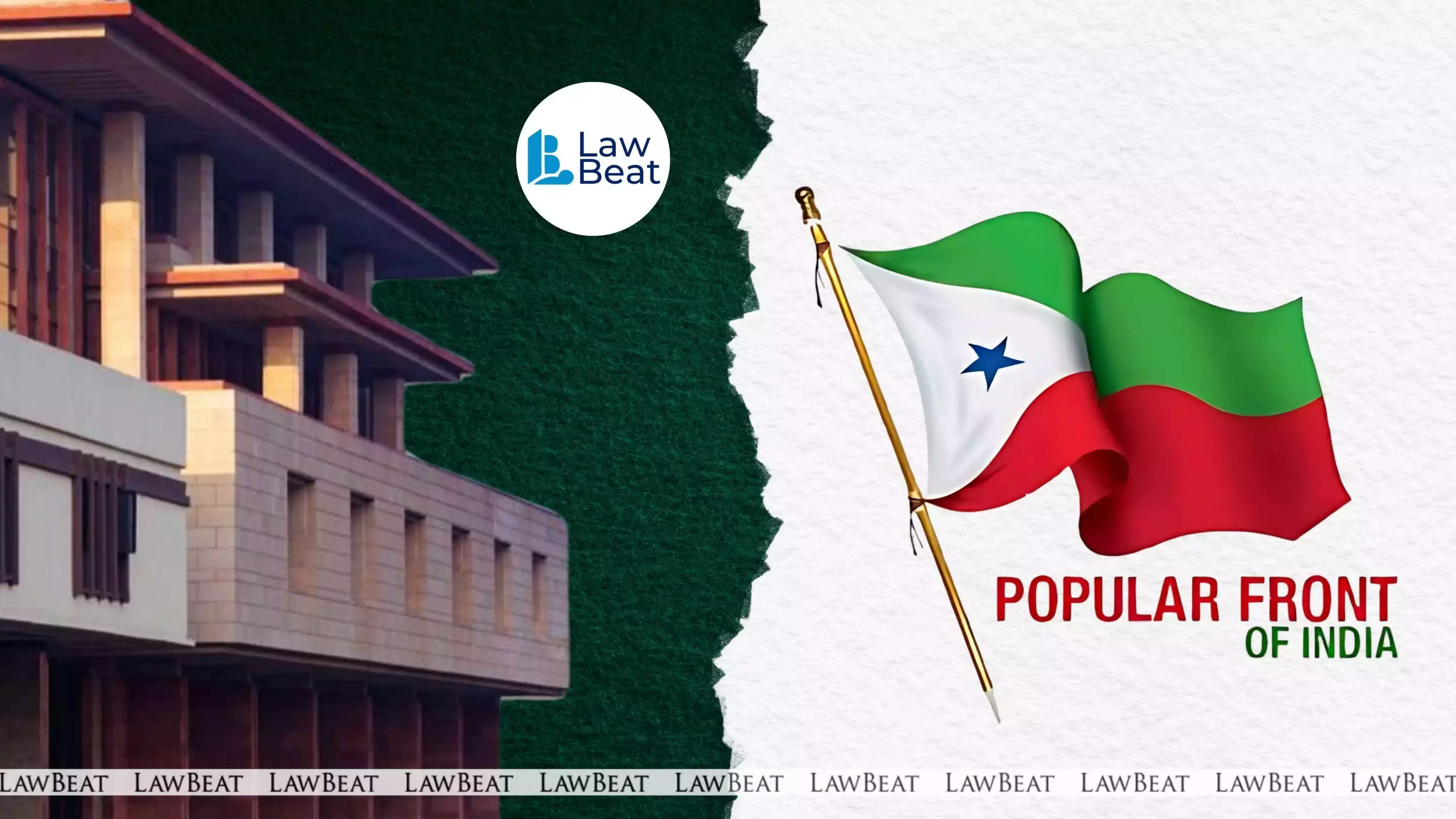Centre Objects to Maintainability of PFI’s Petition Against Ban Before Delhi High Court

The Delhi High Court on Monday, 14 July 2025, heard the Central Government’s objections to the maintainability of the petition filed by the Popular Front of India (PFI), challenging the Unlawful Activities (Prevention) Act (UAPA) Tribunal’s decision upholding the five-year ban imposed on the organisation.
Additional Solicitor General (ASG) S.V. Raju, appearing for the Centre, questioned the maintainability of the petition before a Division Bench comprising Chief Justice Devendra Kumar Upadhyay and Justice Tushar Rao Gedela.
ASG Raju argued that the plea was not maintainable as the Tribunal’s decision was delivered by a bench headed by a High Court judge and, therefore, could not be challenged under Articles 226 or 227 of the Constitution.
He further submitted that the only remedy available was under Article 136 of the Constitution, which the petitioner had already approached the Supreme Court for.
"The only remedy available here is under Article 136 of the Constitution, and the respondent has already approached the Supreme Court as well," ASG added.
On the other hand, counsel for PFI contended, “A Division Bench of this Court has held that the UAPA Tribunal’s decision is amenable to writ jurisdiction under Article 226.”
After hearing the submissions, the Court said, “List the matter after 15 days for arguments by learned counsel for the petitioner.”
The matter will now be heard on August 7.
Background
On 6 November 2023, the Supreme Court dismissed an SLP filed by the Popular Front of India (PFI) challenging the Central Government’s decision to impose a 5-year ban on it and its eight affiliated fronts.
PFI's plea challenged the Unlawful Activities Prevention Act (UAPA) Tribunal presided by Justice Dinesh Kumar Sharma's order which "upheld" the Central Government’s decision.
Centre Imposed Ban On September 28, 2022, the Central Government, in the exercise of the powers conferred by Sub-section (1) of Section 3 of the Unlawful Activities (Prevention) Act, 1967, declared the Popular Front of India (PFI) and the other eight alleged affiliated fronts as ‘unlawful associations’.
The fronts, including Rehab India Foundation (RIF), Campus Front of India (CFI), All India Imams Council (AIIC), National Confederation of Human Rights Organization (NCHRO), National Women’s Front, Junior Front, Empower India Foundation, and Rehab Foundation, Kerala, were banned for five years.
To trace the history, the National Investigation Agency (NIA) and the Enforcement Directorate (ED) carried out massive operations and raids in several states to track down people involved in the outfit.
The Gazette by the Ministry of Home Affairs had put forth, “they have been pursuing a secret agenda to radicalize a particular section of the society working towards undermining the concept of democracy and show sheer disrespect towards the constitutional authority and constitutional set up of the country.”
It had further stated that the PFI indulged in such unlawful activities that were prejudicial to the integrity, sovereignty, and security of the country and could potentially disturb communal harmony.
PFIs linkages were established by two proscribed organizations, the Students Islamic Movement of India (SIMI), and Jamat-ul-Mujahideen Bangladesh (JMB).
Case Title: Popular Front of India v. Union of India
